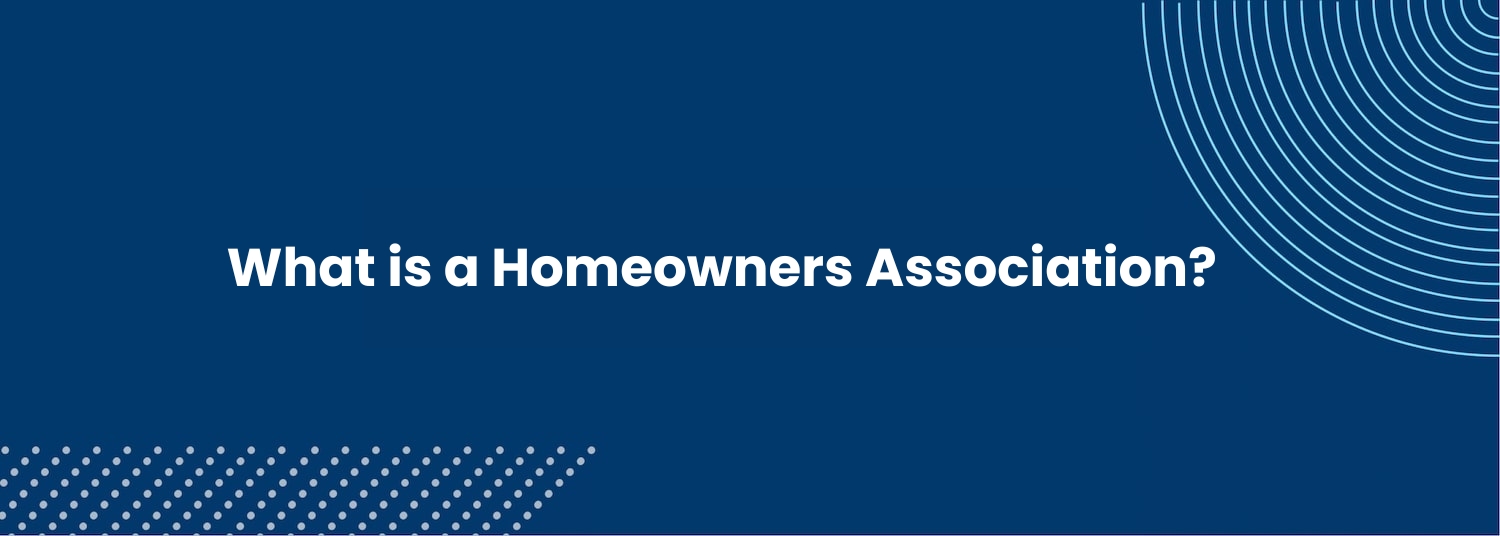Understanding HOAs
A homeowners association, or HOA, is a business entity created by a real estate developer for the purpose of marketing, managing, and selling homes and lots in a residential subdivision. The homeowners association is typically responsible for maintaining common areas, enforcing zoning regulations, and collecting monthly dues from residents.
Why Were HOAs Formed?
The initial purpose of homeowners associations was to maintain common areas and enforce deed restrictions in order to protect property values. However, HOAs have evolved over time and now provide a variety of services that benefit both homeowners and developers.
Some HOAs have strict rules about what residents can and cannot do with their property, while others are much more relaxed. However, all HOAs must follow the governing documents that were put in place when the association was created.
What Services Do HOAs Provide?
HOAs provide a number of important services, including but not limited to:
Maintaining common areas: HOAs are responsible for maintaining all common areas within the subdivision, including parks, playgrounds, and landscaping.
Enforcing deed restrictions: One of the most important functions of an HOA is to enforce the subdivision’s deed restrictions. These restrictions may include minimum home size, architectural guidelines, and pet restrictions.
Collecting monthly dues: HOAs collect monthly dues from residents, which are used to pay for common area maintenance, landscaping, snow removal, and other services.
Providing amenities: Some HOAs provide amenities such as swimming pools, tennis courts, and clubhouses that are available for use by all residents.
What Are the Pros and Cons of Living in an HOA?
There are both pros and cons to living in an HOA. Some of the advantages include:
Improved property values: Because HOAs help to keep properties well-maintained and aesthetically pleasing, they can actually increase the value of homes within the subdivision.
More predictable surroundings: Because HOAs have the power to enforce deed restrictions, residents can be sure that their neighbors will not make any major changes that could negatively impact property values or quality of life.
Access to amenities: As mentioned above, some HOAs provide access to amenities that would not be available otherwise. This can include swimming pools, tennis courts, and more.
The downside of living in an HOA is that residents must abide by the rules and regulations set forth by the association. This can be a problem for people who like to have complete control over their property. Additionally, HOAs can be quite strict, and residents may find themselves being fined for violating even minor rules.
What do HOA Fees Cover?
HOA fees cover the costs of maintaining common areas and providing amenities to residents. This can include landscaping, snow removal, trash pickup, and more. Additionally, HOA fees may be used to pay for building repairs and insurance.
How Are HOAs Governed?
HOAs are typically governed by a board of directors, which is elected by the homeowners within the subdivision. The board is responsible for setting association policies, enforcing deed restrictions, and managing common area maintenance.
What Are My Rights as a Homeowner in an HOA?
Homeowners in an HOA have certain rights that are guaranteed by state and federal law. These rights include the right to:
- Receive notice of all meetings: Homeowners must be given notice of all board meetings, and they have the right to attend and speak at these meetings.
- Receive copies of governing documents: All homeowners have the right to receive copies of the HOA’s governing documents, including the bylaws, covenants, and restrictions.
- Vote in board elections: Homeowners have the right to vote in board elections, and they can also run for a seat on the board.
- Access records: Homeowners have the right to access certain association records, such as meeting minutes and financial statements.
What Are My Responsibilities as a Homeowner in an HOA?
In addition to the rights that are guaranteed to homeowners, there are also certain responsibilities that come along with living in an HOA. These responsibilities include:
- Paying monthly dues: Homeowners are responsible for paying their monthly HOA dues on time.
- Abiding by the rules: Homeowners must follow all of the rules and regulations set forth by the HOA, and they may be fined for violating these rules.
- Maintaining their property: Homeowners are responsible for maintaining their property in accordance with the HOA’s standards. This can include landscaping, painting, and more.
What Happens if I Don't Pay My HOA Dues?
If a homeowner does not pay their HOA dues, the association may take action to collect the outstanding balance. This can include charging late fees, placing a lien on the property, or even foreclosing on the home.
What Happens if I Violate an HOA Rule?
If a homeowner violates an HOA rule, they may be subject to disciplinary action from the association. This can include a warning, a fine, or even a suspension of privileges. In some cases, repeated violations may result in the homeowner being forced to sell their home.
What Are Some Common HOA Disputes?
Common HOA disputes can arise for a variety of reasons, but some of the most common disputes involve issues like:
- Noise violations
- Failure to pay dues
- Property damage
- Parking violations
- Violations of pet policies
Bottom Line
Living in an HOA can have both pros and cons. On one hand, HOAs provide access to amenities and common areas that would not be available otherwise. On the other hand, HOAs can be quite strict, and residents may find themselves being fined for violating even minor rules. Before buying a home in an HOA, it’s important to weigh the pros and cons to see if it’s the right fit for you. Ready to learn more? Contact TurboTenant today!

